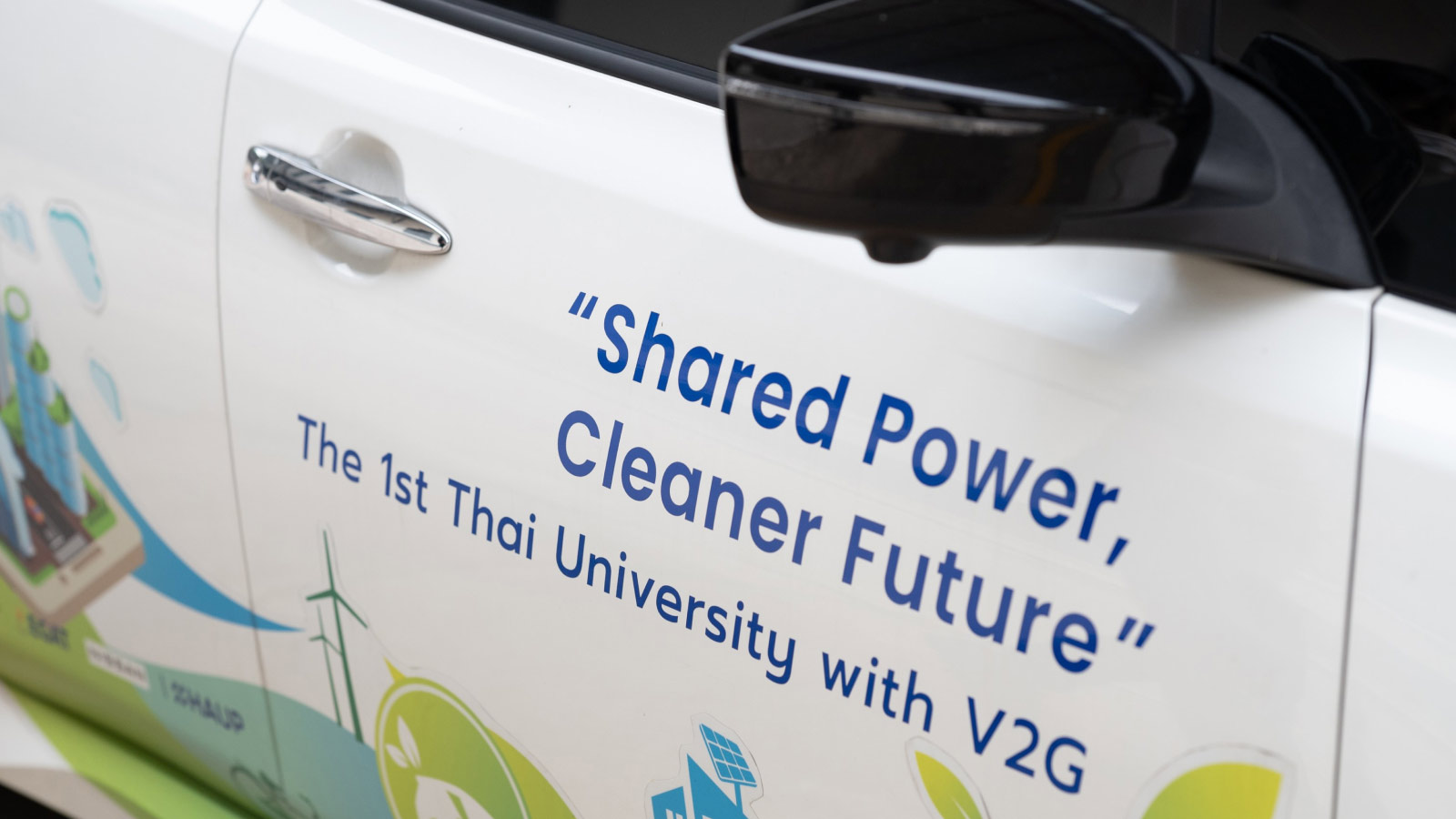V2G: a sustainable energy management technology to celebrate World Sustainability Day

October 30, 2024 is World Sustainability Day. Marked annually on the last Wednesday of October, it’s when all of us around the world are reminded of our mission to adopt sustainable living and make any changes we can to preserve and hand over the nature and natural resources to future generations. V2G or Vehicle-to-Grid, an advanced technology that enables people to utilize energy excess from an electric vehicle (EV) in their homes, can be part of this change.
Like many other countries, Thailand is eagerly welcoming EVs. Many people consider this one of the solutions to saving energy and transport costs and minimizing the impact on the environment through no emission.

V2G, or bi-directional charging technology, can do even better when it comes to EVs. It allows drivers to charge their vehicles before travelling. And, when they return home in the evening, they can use the V2G technology to transfer the remaining power in the battery to the household energy system to power lighting, air-conditioning, and other electrical appliances.
Nissan, one of the world’s top carmakers, has played an important role in developing and promoting V2G technology worldwide. In 2018 at its home base in Japan, Nissan initiated a program called “Blue Switch” to create cleaner mobility and unlock the energy stored in EV batteries to help people hit by earthquakes, typhoons or other emergencies.

In Thailand, Chulalongkorn University is among the first to study the potential of the V2G technology through a collaboration with Nissan Motor (Thailand), and Haup Car, using the Nissan LEAF, a Nissan EV model.

Although it is too soon to see the results, this study will enable us to understand and see how we can improve energy management efficiency, save energy costs, and reduce environmental impacts by adopting V2G technology.

Apart from powering the home energy system using the power stored in an EV battery, V2G technology can be used as an energy reserve during emergencies or after natural disasters that cause power shortages or blackouts. This will ensure uninterrupted supply of electricity, which is very useful for families with members who have to use medical appliances powered by electricity at home.
Having a car that also serves as a personal power plant can help us increase energy management efficiency. With good planning, we can charge our EV during the low-energy-cost hours and transmit energy from the EV battery back to our house during peak hours when energy prices are high. That means we can save costs and maximize energy efficiency.
More importantly, while doing this, we are reducing the emissions that have such a severe impact on the environment.

Change, whether it is big or small, is the responsibility of all of us. If each one of us changes the way we live, even by altering our behavior just a little, we can all make a big difference. On this World Sustainability Day, what do you plan to change?
###
For more information about our products, services and commitment to sustainable mobility, visit nissan-global.com, You can also follow us on Facebook, Instagram, X and LinkedIn and see all our latest videos on YouTube.
For more information, please contact:
Nissan Motor (Thailand) Co., Ltd. – Communications Department
Tel +66 (0) 2339 3400 Ext. 4113-4114 / Fax +66 (0) 2253 1022 www.nissan.co.th
Fleishman Hillard Thailand
Email: yaninee.kasitaranon@fleishman.com
Tel +66 (0) 85 953 3330













